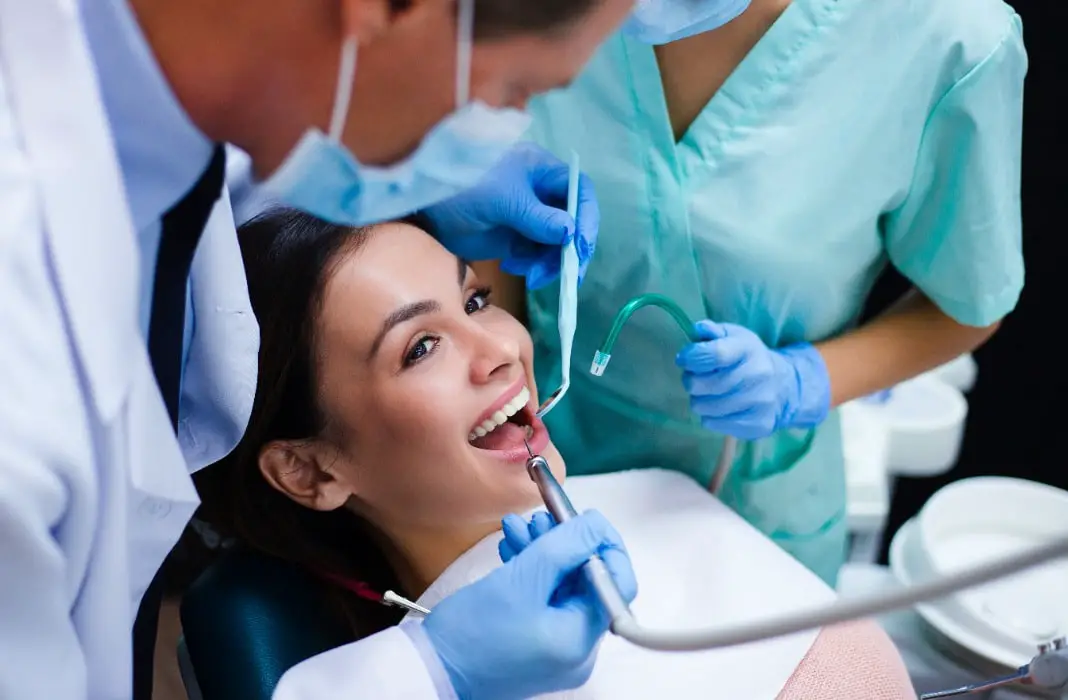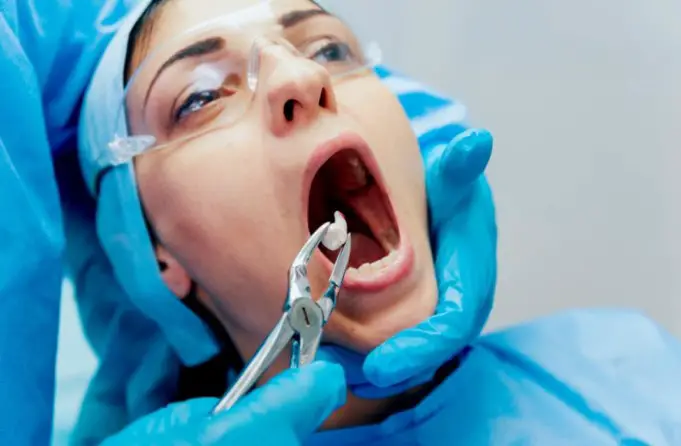Dental surgeries have to be done under the complete care and thorough supervision of a dental surgeon. Like all types of surgeries, the wound caused by the dental surgery will require some time before it fully heals.
It will also require proper care to avoid complications. In some cases, your dental surgeon will even give you some medication which will help the wound recover faster after the surgery.
However, proper care and taking medicines are not enough to ensure the wound caused by the surgery will heal right away. You also need to avoid doing some things which may complicate the wound and slow down your recovery.
Here is a list of things you need to avoid doing after a dental surgery.
1. Avoid Brushing
One of the main things to avoid doing after a dental surgery is brushing especially near or around the surgical spot. You should avoid brushing the surrounding area of the wound for at least three days after surgery is done.
This is what the doctors and dental surgeons from Washington Periodontics advise their customers all the time after a dental surgery.
Dental professionals are always telling us we should brush our teeth at least twice a day, so this advice might be odd for you. But if you brush your teeth after a dental surgery, you risk dislodging the blood clot on the surgical wound.
This blood clot is essential for the healing process and if it’s dislodged it may take some time before the wound heals.
Brushing near the surgical spot also increases the risk of bleeding which can lead to infection. Stroking the area around the wound with a brush can also cause pain and irritation, which is also not ideal.
If you really want to rinse or clean your mouth, you can try gurgling using salt water or mild cold water instead of brushing.
2. Avoid Using Hot Water Compress
When the wound caused by the dental surgery starts to heal, it’s only natural to feel some pain and irritation during the healing process.
The tissues in the wound start to become numb and tender which may cause some pain and discomfort but this is only natural and there is nothing for you to worry about.
You can even ask your dental surgeon to give you some prescribed painkillers and antibiotics if you don’t want to experience pain during the healing process.
Yes, you can take painkillers and antibiotics according to your dental surgeon’s prescription but what you can’t do is use a hot water compress on the surgical spot. You can rinse your mouth using mild cold water.
Forceful rinsing also has to be avoided especially after the dental surgery.
3. Avoid Using Straw
Drinking water or cold tea is not bad after a dental surgery. You can even eat ice cream if you want after a tooth extraction process. The cold taste of the beverage you drink or the food you eat will help relieve pain and irritation.
Just make sure that whenever you drink a cold beverage after the dental surgery, you avoid using a straw. Using a straw can affect the surgical area and may cause severe pain and discomfort.
Sucking with a straw creates a motion that can cause the blood clot to dislodge from the wound. Once the blood clot is damaged, it won’t form again and may cause dry sockets which can be very painful.
Drink gently and slowly whenever you drink water or other kinds of beverages.
4. Avoid Drinking Any Alcoholic Beverages
You can drink any kind of beverage after dental surgery, except for the alcoholic ones. Alcohol consumption after a dental surgery can have negative effects on your surgical wound.
It will cause the clot to dislodge from the wound area which can be painful and will slow down the healing process.
5. Avoid Smoking or Chewing Tobacco
You also have to avoid smoking or chewing tobacco after a dental surgery. Smoking or chewing tobacco will only prevent the surgical wound from healing quickly and it also causes negative effects to your oral health.
Just like using a straw, the sucking motion created by smoking tobacco can dislodge the blood clot from the wound which is essential for proper healing.
Also, nicotine from tobacco causes blood vessels to constrict, making it harder for the essential nutrients needed for healing to reach the wound.
6. Avoid Eating Solid or Hard Foods
You should also avoid eating solid or hard foods after the dental surgery. Dental surgeries cause numbness and it’s not advisable to eat solid foods after the procedure as it may affect the wound.
Start eating solid foods once you start feeling your jaws again. After a dental surgery, it’s best to eat soft and liquid foods such as milkshakes, ice cream, smoothies, soups, mashed potatoes, or anything that won’t require you to chew the food.
7. Avoid Skipping On Your Medicines
You should never skip on taking your medicines if you want the wound to heal quickly. Also, make sure that all the medicines you take after the dental surgery are prescribed by your dental professional.
Your medicines should be taken regularly. If you’re given antibiotics, make sure that you take them on a daily basis. Your dental professional will also give you some prescription medication for pain and inflammation.
Painkillers and anti-inflammatory drugs can help relieve pain and reduce the risk of swelling. If you still feel pain and there is bleeding two days after the dental surgery, you should call your dental professional immediately.
8. Avoid Poking The Gap
If you recently have a tooth extraction, you might be tempted to poke the gap created after the surgery using your tongue, finger, or toothpick.
That is something you must avoid doing after tooth extraction as it can destroy or dislodge the blood clot formed. Also, poking further might cause bleeding and infection.
9. Avoid Exercising or Overexerting Yourself
You should also avoid exercising or doing anything that will force you to overexert yourself. Exercising during the first week after dental surgery will not cause infection or swelling.
The only problem associated with exercising is bleeding, especially if you do it in the first 24-48 hours after surgery.
If you continue to overexert yourself by doing some significant physical activity during the first week after the surgery, you might end up suffering from more pain than usual.

Here are some essential tips to remember:
- It’s best to avoid doing all kinds of strenuous physical activities, especially after the first two days after surgery. For minor dental surgical procedures, most patients can resume their light workout activities or exercises for 3-5 days after the surgery. As for major surgeries, patients are advised not to do anything strenuous for 5-7 days after the surgery.
- You should take extreme caution, especially if you’re taking narcotic pain medications after the dental surgery as they can cause drowsiness. So, it’s better to stop doing exercises or workouts for at least 5-7 days after the surgery.
- You can also visit your dental professional and ask if it’s already okay for you to resume your workout regimen or if you need to lay off of it longer. Take it easy at all times so you can avoid any surgical complications.
10. Don’t Rinse Your Mouth
However tempting it maybe, don’t rinse the surgical area for at least 24 hours after the dental surgery. It is important for you to let the socket to heal on its own.
You also need to be extremely careful in your daily activities to avoid damaging the blood clot that has formed over the wound.
Also, don’t use your tongue to poke the wound even though it’s very irritating. Doing so, will only cause infection in the socket and slow down the healing process.
Don’t worry about bleeding during the first day after the surgery as it is completely normal. Most people are so concerned about the amount bleeding that happens after a dental surgery.
But this is really nothing to worry about. You may think you are bleeding too much but in reality, it’s just your saliva mixed with blood which makes the bleeding look more dramatic.
Even if there’s bleeding, you are still not allowed to rinse it out. You can, however, apply pressure to it by biting a clean piece of clean cotton or a handkerchief for at least 15 minutes or until the bleeding has stopped.
If the bleeding still has not stopped after several hours, contact your dental professional immediately.
Final Thoughts
Dental surgery aftercare is very important. Be sure to listen to the advice and instructions given by your dental professional after the surgery and follow them to the letter, if you want the wound to heal quickly and avoid any surgical complications.
If all things go well and if you follow all the instructions provided by your dental professional, expect your teeth to heal more quickly than the expected duration.
You can only go back to your daily routine once the surgical site is fully healed.












